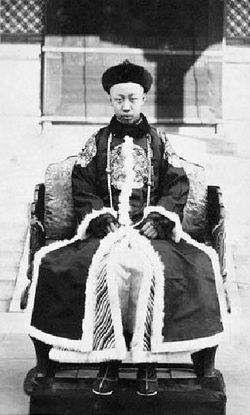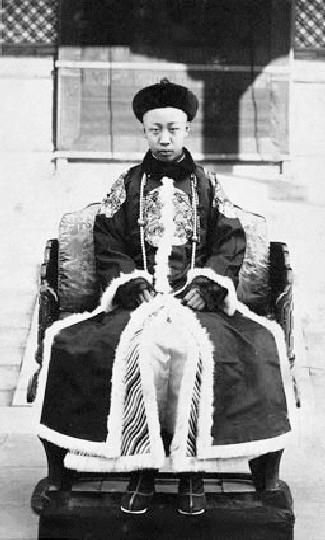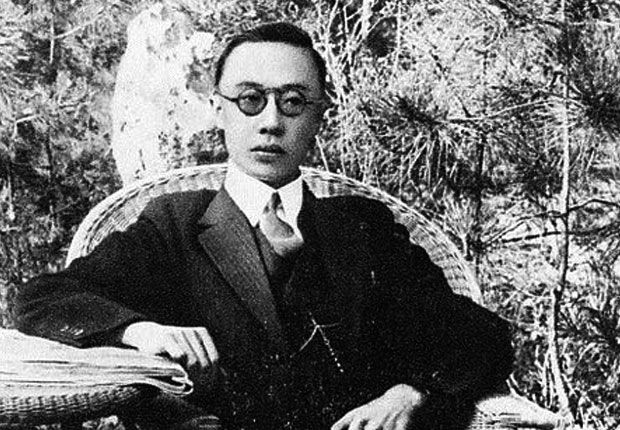Last Emperor of China. After the death of his uncle, Guangxu became the last emperor of China in 1908, "Great Emperor of the Great Qing Dynasty, Great Kahn of Tartary, Son of Heaven and Lord of Ten Thousand Years." Puyi was raised by court officials who taught him to leave a desolate life. A Scottish tutor, Reginald Johnston, was hired for him. He became both a friend and mentor. Puyi as a result of Johnston, developed a passion for anything Western. Emperor was forced to abdicate in 1912 after the 1911 Republican Revolution but was permitted to live in the Forbidden City until 1924. He was courted by the Japanese, who had acquired the former German concessions in Manchuria. Puyi took up residence in the Japanese concession at Tientsin. The Japanese gradually expanded their control of Manchuria. They installed him in 1933 as Emperor of the puppet state of Manchoukuo. The Soviets invaded Manchuria in the final weeks of World War II and turned him over to the Chinese for trial as a war criminal. The Chinese pardoned him in 1959 and he received full rights as a citizen in 1960. He returned to Beijing, where he worked in the mechanical repair shop of a botanical garden. His autobiography was published in 1964. Puyi's life was beautifully told in Bernardo Bertolucci's film, "The Last Emperor."
Last Emperor of China. After the death of his uncle, Guangxu became the last emperor of China in 1908, "Great Emperor of the Great Qing Dynasty, Great Kahn of Tartary, Son of Heaven and Lord of Ten Thousand Years." Puyi was raised by court officials who taught him to leave a desolate life. A Scottish tutor, Reginald Johnston, was hired for him. He became both a friend and mentor. Puyi as a result of Johnston, developed a passion for anything Western. Emperor was forced to abdicate in 1912 after the 1911 Republican Revolution but was permitted to live in the Forbidden City until 1924. He was courted by the Japanese, who had acquired the former German concessions in Manchuria. Puyi took up residence in the Japanese concession at Tientsin. The Japanese gradually expanded their control of Manchuria. They installed him in 1933 as Emperor of the puppet state of Manchoukuo. The Soviets invaded Manchuria in the final weeks of World War II and turned him over to the Chinese for trial as a war criminal. The Chinese pardoned him in 1959 and he received full rights as a citizen in 1960. He returned to Beijing, where he worked in the mechanical repair shop of a botanical garden. His autobiography was published in 1964. Puyi's life was beautifully told in Bernardo Bertolucci's film, "The Last Emperor."
Bio by: Jelena
Family Members
Advertisement
See more Pu Yi memorials in:
Explore more
Sponsored by Ancestry
Advertisement















